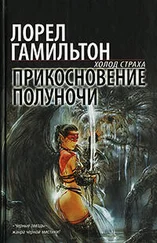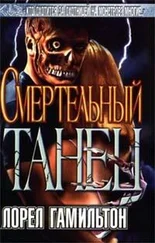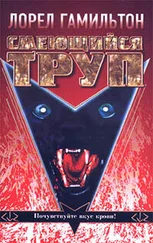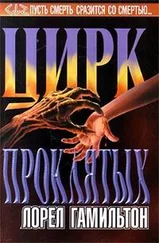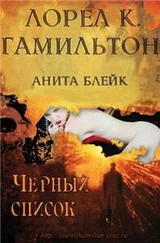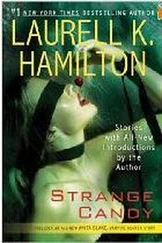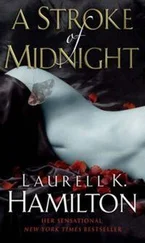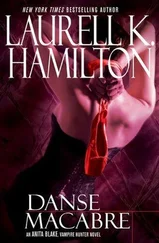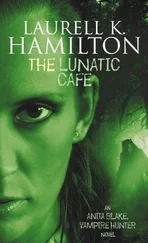Gannon said, “Agreed. We save the minstrel. If the curse-maker just happens to perish,” he smiled, “well, that is an added bonus.”
Sidra smiled. “Even a duke’s son can have an accident.”
She bent close to Malhari’s face. “Tell me where he is.”
“You wish more information from me, Sidra? I am a businessman.”
“You are a fool,” Gannon said.
The blade tip bit into Malhari’s neck. Blood trickled down his throat. Sidra said nothing.
The innkeeper’s breath caught in his throat. “For you, Sidra. Bardolf has a house on Silk Street.” He stared into her eyes and saw death. “Take the money, Sidra. I give you this information freely.”
She smiled then. “No, Malhari. If it was a gif t, then the bonds of friendship would constrain me. This way it is only money, and I owe you nothing.”
He tried not to swallow around the point of the knife. “I don’t want you to sell this information to anyone else,” Sidra said.
Malhari was having trouble talking. “I give you my word, I will not.” “Your word means nothing. Gannon, if you please.”
“With great pleasure.” The sorcerer smiled. There was something of fearful anticipation in that smile.
Sidra stepped back from the man, quick and careful.
“Please, Sidra, I would not tell. I swear to you.”
Gannon made a broad sweeping gesture, hands upraised to the ceiling, and brought his hands down in a fast clap, pointed at the man.
Where Malhari had sat there was a large black tomcat missing one front paw. It yowled once and fell silent. Sidra had never seen horror on a cat’s face, but she saw it now.
Gannon said, “It is a permanent shapechange, Malhari, unless I remove it.” He knelt, eye level with the cat. “It is almost a curse, but not quite.”
The big cat just stared at them, yellow eyes dazed.
Sidra said, “Come, we haven’t much time.”
Precious minutes had passed before they stood in an alley that spilled into Silk Street. They were in a wealthy part of town. It was well known that Bardolf was the duke’s favorite son, and the grand house showed it. The wealthy could afford magical guardians, things that normal steel could not touch. Sidra’s long sword was such ordinary steel. The short sword was not.
Sidra unsnapped the locks on the hilt, and the short sword sprang to her hand, rising of its own accord. The sword said, “Ah, free.” Without moving, it gave the impression of catlike stretching.
“I may have work for you tonight,” Sidra told it.
The sword hissed, “Name me.”
“You who were Blood-Letter when the world was new. You who were Wound-Maker in the hands of a king. You who were Soul-Piercer and took the life of a hero. You who were Blood-Hunger and ate your way through an army. I name thee blade mine, I name thee Leech.” For every name the sword had taken, the legend had ended with the blood blade slaying its wielder.
The sword chortled, “I am Leech, Leech. I am the bloodsucker.” The sword’s voice dropped to a whisper. “Feed me.”
Sidra pressed the naked steel against her bare forearm.
The sword felt like any steel against her flesh. Gannon assured her that, once activated, Leech gave off an aura of evil. “Feed gently, Leech, for we have much work to do.”
There was always the chance that Leech would take too much and kill her. It had happened to others, great heroes. But the sword bit once into her arm. Blood poured in a sharp painful wash down her skin. The blade said, “Sacrifice made, contract assured.”
Sidra ignored the wound. It would heal in a moment or two to join the dozens of shallow white scars that crisscrossed her hands and arms. She did not bother to clean the blade. All blood was absorbed cleanly. It truly did feed.
Gannon stepped close, and the sword struck at him.
Sidra held it two-handed, saying, “Behave.”
“You don’t frighten me, little knife,” the sorcerer said.
“Not afraid,” the sword whined. “No fun.” The sword turned in her hands as if looking for something. “Where is bard? Bard fears Leech. Baard,” the sword called, drawing the word out in a singsong, “Baard.”
“Silence, Leech.” Sometimes the blood blade seemed aware of everything that went on. It would spring from its sheath ready for action. At other times it acted as if it had been asleep until called. Sidra wondered what, if anything, the blood blade dreamed of. She doubted she would enjoy the answer, and she knew Leech would lie about it anyway. Blood blades were notorious liars.
She told the sword only that the bard was away. If the sword knew that Milon’s life was at stake, it would demand a larger blood price.
Sidra sheathed Leech but left its locks undone in case she needed it quickly. The blade did not fight being sheathed; it was strangely content tonight. It hummed one of Milon’s own tunes—Leech’s favorite—“Lord Isham and the Goose Girl.” There were two versions: one for the taverns and one for the prince’s halls. Leech, of course, preferred the bawdy version.
She persuaded the blade to stop humming and scouted the house. She was a flicker of shadow, gone before you could look directly at it.
She returned to Gannon. “Two doors: this one and another that leads into a small yard. Both doors are posted with warning signs. They’re both warded.”
It was the law in Selewin that you had to post signs for wardings. There had been too many innocent people killed.
“All windows are barred, no traps that I could see.”
She asked Gannon, “What kind of warding is on the front door?”
He concentrated a moment, staring at the door, and then said, “Fire, powerful enough to kill whatever touches it.”
Sidra gave a low hiss. “I thought death wards had to be marked as such?”
“By law they do.”
“Can you get us past it?”
“Yes, but stay well back while I’m testing it.”
Sidra knew what would happen if he failed to negate the warding. He would die, and he didn’t want to risk her life as well. But Gannon had risked himself before, as had they all.
Sidra nodded, and Gannon walked alone into the street. He pressed his hands wide and moved them toward the door. Leech began to hum a drum roll. “Brrrrrm, brrrrm.”
“Hush.”
The sword did not stop but only hissed an accompaniment as the sorcerer touched the door. Gannon’s back bowed outward, and the sword hissed a crescendo. Sidra slapped the sword’s sheath, and it made
a muffled sound and fell silent.
Gannon was walking toward them, cape pulled close about him. The door looked just the same to Sidra. A sorcerous ward was always invisible until you tripped it, unless you had eyes that could see magic.
The sorcerer stepped into the alley, and Sidra said, “Let me see your hands.”
He hesitated only a moment, then drew them from inside his cloak. The palms were scorched and hung heavy with huge watery blisters.
Sidra drew a hissing breath. “Gannon, can you go on like that?”
He shrugged and grimaced. “There will be many sorceries I cannot do with injured hands. I can still levitate and teleport, but not much else.”
“Our luck is low tonight.” She touched his shoulder. “It is up to you, Gannon. I cannot ask you to go on.” “No one asked me to come.”
She nodded. It was his choice, and she would not tell him to stay behind.
The door looked ordinary enough except for the sign next to it that read, “Warning. WARDINGS in place. Please ring bell.” A brass bell hung from a bracket by the door, its cord swinging uneasily in the night wind.
Sidra knelt beside the door and touched the rough wood. No fire, no warding—Gannon had done his job. The lock was cheap and easily picked. All that money on a sorcerous ward, then skimping on the lock itself. Bardolf wasn’t spending his money wisely.
Читать дальше

